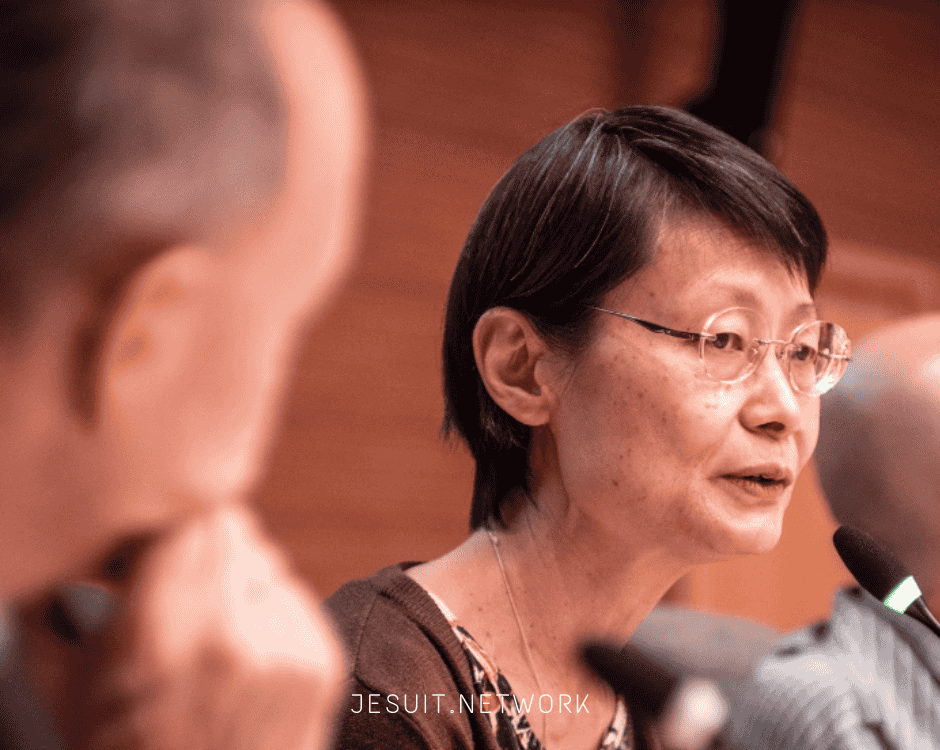Este sitio web utiliza cookies para que podamos ofrecerle la mejor experiencia de usuario posible. La información sobre cookies se almacena en su navegador y realiza funciones como reconocerle cuando vuelve a nuestro sitio web y ayudar a nuestro equipo a comprender qué secciones del sitio web le resultan más interesantes y útiles.
Global Ignatian Advocacy Networks (GIAN): Collaboration for Justice and Dignity
[pullquote align=»right»] To be close to the poor fills one’s life with meaning when it is done so with generosity and selflessness. [/pullquote]However, these same people know that their actions are not enough if they are not also accompanied by the fight for structural change. Serving the poor can console, but doing so without searching for a solution to the causes that generate exclusion is a sin of omission.
The causes that generate exclusion have an international dimension: an economy at the service of those who have the most, growing inequality, immigration obstacles, exclusive fundamentalisms, armed conflict, unsustainable production and consumption habits…these are very serious issues, that our social institutions, which are strong at the local level, cannot address alone. We need to unite efforts and collaborate internationally. Together we can learn best practices, to profoundly reflect on the issues, combine resources, identify causes and establish strategies for change.
The 35th General Congregation in 2008, aware of this reality, said: “The complexity of the problems that we face and the wealth of opportunities that are offered, demand that we commit to build bridges between the rich and the poor, establishing advocacy links of mutual support between those who hold political power and those who find it difficult to voice their interests” (d.3, n.28). GC 35 demanded, therefore, to collaborate in the field of political advocacy in favor of those who are vulnerable.
Based on this commitment to greater internationalization and political advocacy, the Social Apostolate of the Society of Jesus identified the need to create networks to unite efforts and the hope of accompaniment and service to the poor, based on profound analysis and much needed dialogue with public decision makers. Networks that serve those at the margins, and that also contribute to the transformation of situations of injustice.
[pullquote align=»left»] We are not only called to accompany those who are excluded but also to fight for justice and dignity. [/pullquote] Since 2008, four networks have been developed, the Global Ignatian Advocacy Networks (GIAN). These have been created in response to four important global challenges where several institutions of the Society of Jesus have been working in different continents:
- GIAN Migrations, which works for a culture of hospitality and fights for the rights of the most vulnerable migrants.
- GIAN Ecology, which promotes new manners of consumption and encourages contemplation and gratitude for creation. Its advocacy is focused on policies related to water management, which greatly affects the lives of the poor.
- GIAN Governance of natural and mineral resources, which defends the rights of communities affected by extractive activities, which are often times carried out by large multinational companies. The network supports the accompaniment of rural and indigenous communities that suffer the conflicts generated by these activities.
- GIAN Right to Quality Education for all, which favors policies that guarantee that States offer quality education, a key condition for sustainable human development.
The road we have ahead of us is long, but it is meaningful. These networks are allowing institutions to open up their perspectives and become involved in important causes. Because, in the end, we are not only called to accompany those who are excluded but also to fight for justice and dignity.
[/vc_column_text][vc_raw_html]JTNDc3R5bGUlM0UlMEElMEElMjN0aXRsZSUyQyUyMCUyM2hlYWRlciUyMCUzRSUyMGRpdi5jb250YWluZXIlMjAlN0IlMEFkaXNwbGF5JTNBbm9uZSUzQiUwQSU3RCUwQSUyM25hdmlnYXRpb24lN0IlMEFkaXNwbGF5JTNBbm9uZSUzQiUwQWJvcmRlci1ib3R0b20lM0ElMjAxcHglMjBzb2xpZCUyMCUyM2RkZGRkZCUyMCUyMWltcG9ydGFudCUzQiUwQSU3RCUwQWg0LnRpdHVsZXRlJTIwJTdCJTBBbWFyZ2luLXRvcCUzQTEwcHglMjAlMjFpbXBvcnRhbnQlM0IlMEElN0QlMEFhJTNBaG92ZXIlMjAlN0IlMEFjb2xvciUzQSUyMCUyMzAwODJDOCUyMCUyMWltcG9ydGFudCUzQiUwQSU3RCUwQSUzQSUzQXNlbGVjdGlvbiUyMCU3QiUwQWJhY2tncm91bmQlM0ElMjAlMjMwMDgyQzglMjAlMjFpbXBvcnRhbnQlM0IlMEElN0QlMEFkaXYucG9zdC10aHVtYiUyMCU3QiUwQW1hcmdpbi1ib3R0b20lM0EyMHB4JTNCJTBBJTdEJTBBJTIzdWktaWQtMiUyQyUyMCUyM3VpLWlkLTMlMkMlMjAlMjN1aS1pZC02JTJDJTIwJTIzdWktaWQtOCUyMCU3QiUwQWhlaWdodCUzQWF1dG8lMjAlMjFpbXBvcnRhbnQlM0IlMEElN0QlMEElM0MlMkZzdHlsZSUzRSUwQQ==[/vc_raw_html][/vc_column][/vc_row]





